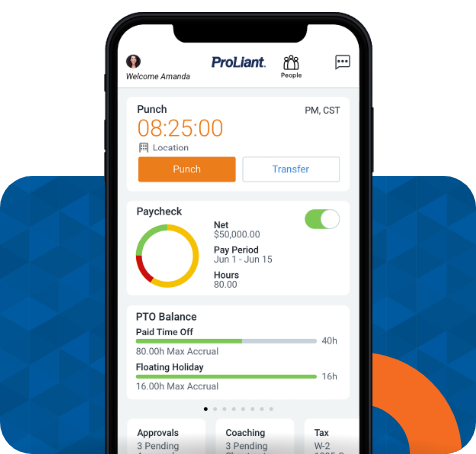Leadership training is essential for people in positions of authority to build and maintain skills necessary for delegating tasks, handling conflicts, managing personnel, and building trust. However, a vital element of leadership often overlooked in such training is the development of emotional intelligence (EI).
No matter what position you hold within your organization, understanding and developing EI can make a profound difference in your ability to inspire and lead others. So let's take a closer look at the significance of emotional intelligence in leadership and how you can cultivate it to enhance your effectiveness.
What is Emotional Intelligence?
Mental Health America defines emotional intelligence as “the ability to manage both your own emotions and understand the emotions of people around you.” Emotional intelligence comprises five key elements: self-awareness, self-regulation, empathy, social skills, and motivation. Combined, these components form a powerful skill set that helps those in leadership positions navigate complex interpersonal dynamics.
Here are three skills you can develop through greater emotional intelligence:
- The ability to identify, name, and manage one's own emotions.
- the ability to harness those emotions and apply them to tasks like thinking and problem-solving
- the ability to help others manage their feelings
While you may not be able to control the emotions of others, with emotional intelligence, you better understand how others feel and the best way to interact with your team members, build strong relationships, and make sound decisions.
The Link Between Emotional Intelligence and Leadership
Emotional intelligence contributes to building vital skills for leadership in the workplace. An article by Mental Health America states that high emotional intelligence overlaps with strong interpersonal skills regarding effective communication and conflict resolution.
Here are a few ways emotional intelligence makes more effective leaders:
- Better Decision-Making. Emotional intelligence makes it easier for people to self-regulate emotions and avoid impulsive decisions, helping them think objectively and make better decisions.
- Collaboration and cooperation. Greater emotional intelligence contributes to greater empathy and understanding, which is vital to teamwork, managing relationships, and validating the opinions and efforts of employees.
- Conflict Resolution. Developing emotional intelligence through training exercises helps leaders understand how emotions work so that they can help their employees work through them and find amicable solutions to problems in the workplace.
- Inspiration and Motivation. Leaders with high levels of emotional intelligence are more likely to inspire and motivate their teams by fostering a positive work environment built on trust.
Research consistently shows a strong correlation between emotional intelligence and effective leaders who can adapt to change with agility. In addition, leaders with greater emotional intelligence are likelier to improve team performance and drive meaningful outcomes.
Assessing Your Emotional Intelligence as a Leader
At this point, you may ask yourself, “How do I know if I have high emotional intelligence?” Luckily, some academic types at Harvard’s Professional Development Division of Continuing Education put together some key traits to help identify people with high emotional intelligence versus low emotional intelligence.
People with high emotional intelligence:
- Understand the links between their emotions and how they behave
- Remain calm and composed during stressful situations
- Can influence others toward a common goal
- Handle difficult people with tact and diplomacy
People with low emotional intelligence:
- Often feel misunderstood
- Get upset easily
- Become overwhelmed by emotions
- Have problems being assertive
Of course, there are a variety of assessments leaders can take to evaluate their level of emotional intelligence, but you should always start by looking within via self-reflection. Feedback from colleagues and mentors is equally important.
Strategies for Developing Emotional Intelligence in Leadership
Now, you probably have a pretty good idea of emotional intelligence and where you might stand on the EI scale, but what can you improve?
Here are some ways to get started developing greater emotional intelligence for leadership:
Start with Self-Awareness
To be more self-aware, you must cultivate mindfulness, engage in self-reflection, and seek feedback to understand your emotions, strengths, and weaknesses. Research suggests you take these steps to build greater self-awareness:
- Identify and name your current emotions.
- Take note of the emotions that arise in moments of stress.
- Consider how you respond in stressful situations. Are you usually able to pause to consider your response?
Taking time to name your feelings and consider how you react to them is vital to emotional intelligence.
Focus on Self-Regulation
Practice emotional self-control, learn to manage stress effectively, and develop strategies for responding to challenging situations calmly and composedly. In addition, practicing self-awareness and focusing on your physical and mental health will lead to greater self-regulation skills.
Employ Empathy
Try to understand what people are communicating beyond what you hear them say. For example, people often hesitate to express their feelings, especially at work. Foster empathy by actively listening, seeking to understand other's perspectives, and showing genuine concern for their emotions and needs.
Build Relationships
Hone your interpersonal skills by building solid relationships with team members and stakeholders through a culture of collaboration and communication. This means that leaders should encourage feedback at every opportunity, provide consistent feedback and encouragement, offer regular performance reviews, and ensure employees know their hard work is recognized. Not only will this help build social skills in the workplace, but it will also improve motivation for leaders and their employees.
Next Steps for Leaders Looking to Improve Emotional Intelligence
Building greater emotional intelligence is a difficult task for many people, but taking the time to consider the different elements that make up emotional intelligence and how those ideas affect employees is a significant first step to becoming a more decisive leader. Even the act of reading this far into the blog post about improving emotional intelligence shows that you are the type of person who wants to be a strong leader in providing the best experience for your employees.
The next step is to continue looking for ways to understand others around you, keep listening to your employees, and find tools to reduce stress and improve overall employee wellness. Ultimately, showing you care about your employees is the most significant sign of a fantastic leader.







No Comments Yet
Let us know what you think